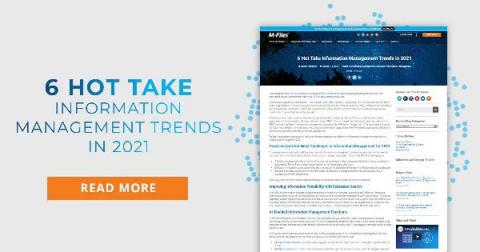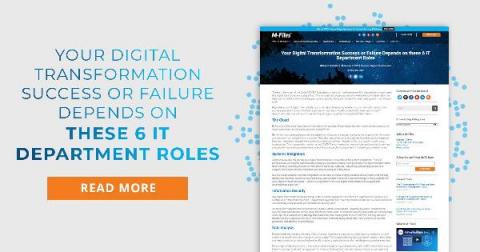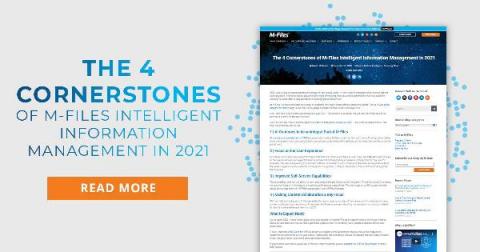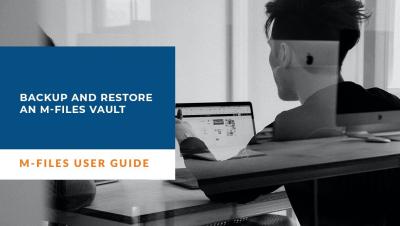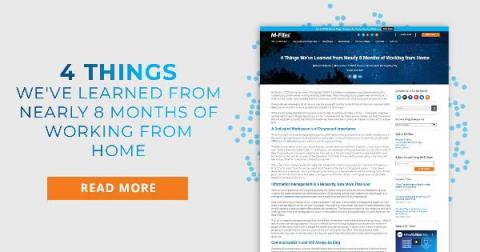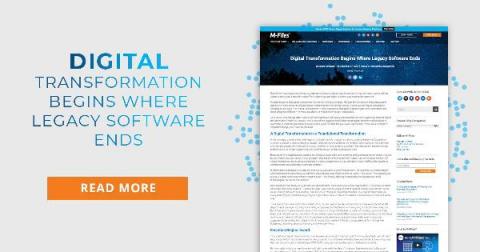Teams | Collaboration | Customer Service | Project Management
M-Files
6 Hot Take Information Management Trends in 2021
According to Nitro, workers spend an average of 50% of their time creating and preparing documents. Yet, document issues account for more than 21% of daily productivity loss. Businesses depend on information — documents, files, data, content… everything. It is the lifeblood of just about every organization. The past few years have seen a reckoning for companies in how they capture, store, structure, and disseminate information within the organization.
Your Digital Transformation Success or Failure Depends on these 6 IT Department Roles
Thanks to the onset of the global COVID-19 pandemic, more and more businesses find themselves in urgent need of a digital transformation to stay afloat. This includes both organizations who were previously interested in the idea but who didn’t think it would happen quite so quickly, along with those who never really gave it much thought at all.
The 4 Cornerstones of M-Files Intelligent Information Management in 2021
2020 was a year of unprecedented challenge for the whole world — when what we thought of as normal did not exist anymore. Everyone had to adjust to new ways of working and a business community that was suddenly closing its doors after a long period of increasing global movement. In M-Files, we face the same challenge of suddenly moving to home offices across the globe. For us, it was quite straightforward though, as M-Files is designed to enable remote work from anywhere.
Why Metadata is as Valuable as the Data Itself: The Information Innovation Podcast
How to Download and Install the M-Files Trial Version | Intelligent Information Management System
M-Files Administrator: Modifying Existing Property Definitions and Value Lists
M-Files Administrator: Backup and Restore an M-Files Vault
4 Things We've Learned from Nearly 8 Months of Working from Home
In March of 2020, during the onset of the global COVID-19 pandemic, employees in just about every industry suddenly found themselves working remotely indefinitely. Telecommuting had long been seen as the future of work, but few could have predicted that this “brave new world” would have come along quite as soon as it did.
Digital Transformation Begins Where Legacy Software Ends
One of the most important things to understand about a digital transformation is that ultimately, you’re talking about exactly that: a transformation from where you are today to where you hope to be tomorrow. In order to get to that point, companies have to be willing to change. Not just for the sake of it, but because it makes the most sense at this particular moment given everything that you’ve set yourself up to accomplish.



